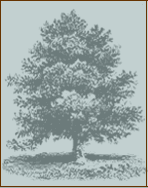" To
enhance undergraduate learning in the liberal arts by
promoting use of library special collections"

Participating
Institutions

|
Teagle
Project
EXECUTIVE SUMMARY
This project began with the hypothesis that academic institutions
and their libraries are ready to make significant progress
in bringing special collections into the classroom - or in
taking students to special collections. That is to say, we
believed that introducing undergraduate students to special
collections in a structured learning environment could enhance
educational outcomes in numerous ways.
We formed a coalition of nine Connecticut institutions and
set out to explore interaction among those institutions and
engagement with special collections housed not only in those
institutions but in other cultural establishments in the state.
The coalition included a range of public and private institutions,
from community colleges to internationally renowned universities.
We paid particular attention to non-print media, including
oral history and visual media.
Our work proceeded by developing some specific resources
of information and expertise for participants to use; by designing
and conducting daylong workshops on topics where participants
agreed that opportunity was real but impeded by the lack of
information; by a series of site visits designed to measure
progress and opportunities at participating institutions;
and by designing and implementing assessment techniques, both
to measure the outcome of this project and also to assist
teachers and institutions who would follow in this direction
when they come to review the outcomes of special collections-based
learning.
We concluded that there are significant opportunities more
or less ready to hand in Connecticut and, by extension, in
other comparable regions, on which faculty in institutions
of many kinds can draw. Students can gain experience in handling
and studying materials, in forming and pursuing research questions
based on those materials, and in understanding the importance
of the material artifacts of information for the creation
and preservation of valuable knowledge. The learning environment
in which students encounter these materials, moreover, strongly
reinforces valuable forms of active, research-based learning.
We explored as well the constraints under which these opportunities
are encountered, including, not surprisingly, multiple forms
of support - not all of them by any means notably expensive,
but all of them real in terms of both dollars and time - that
faculty and librarians need in order to be actively engaged
in the practices we have studied. In short, in order for special
collections to become a meaningful part of the classroom experience,
incentives (in the form of release time, librarian and other
support, training, academic reward, and so on) need to be
created, most often at institutions which have no way to provide
these.
The report ends with suggestions of ways in which this project
itself could be carried forward, particularly for making its
possibilities and conclusions more widely known.
9-26-06
|